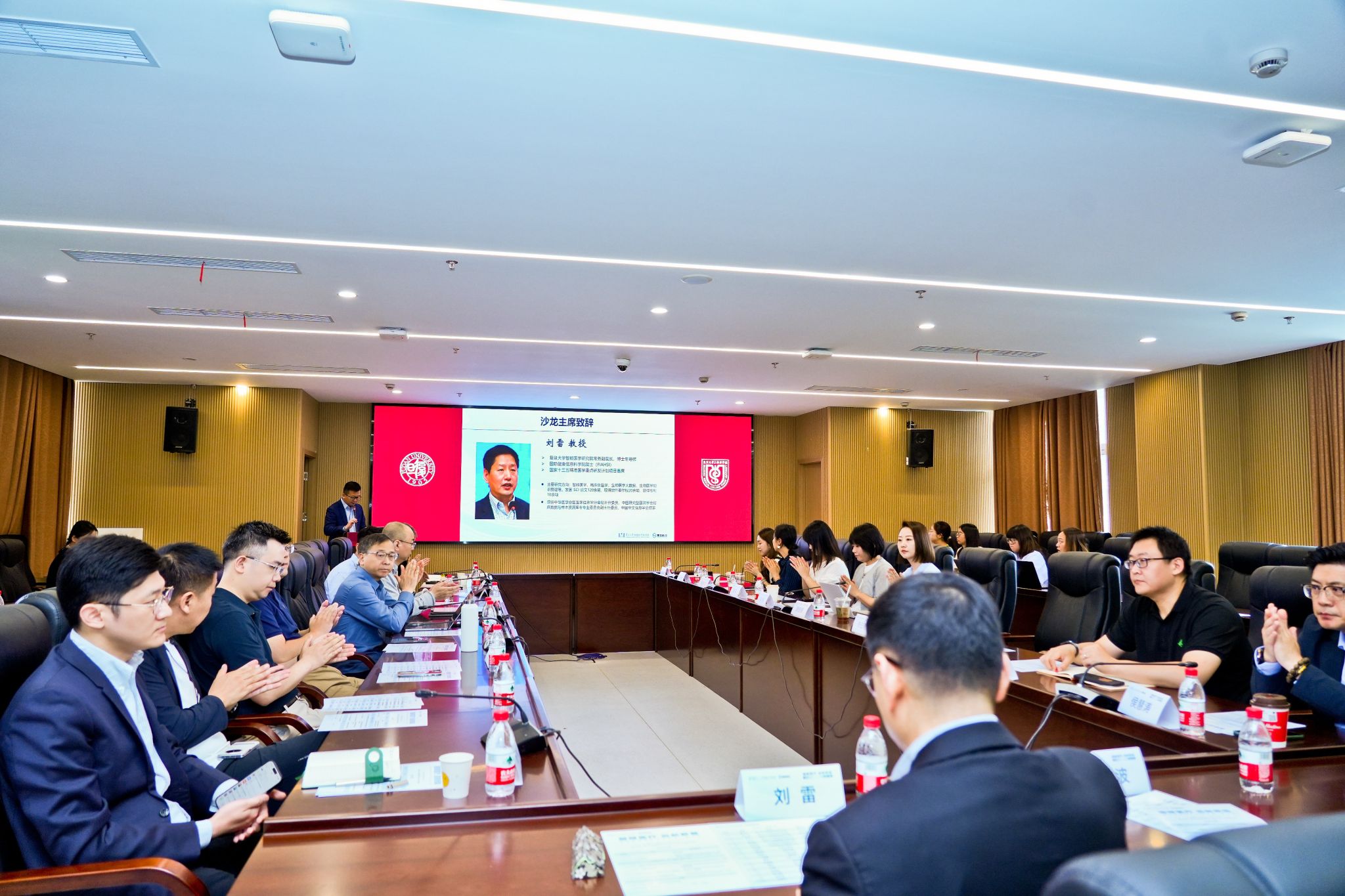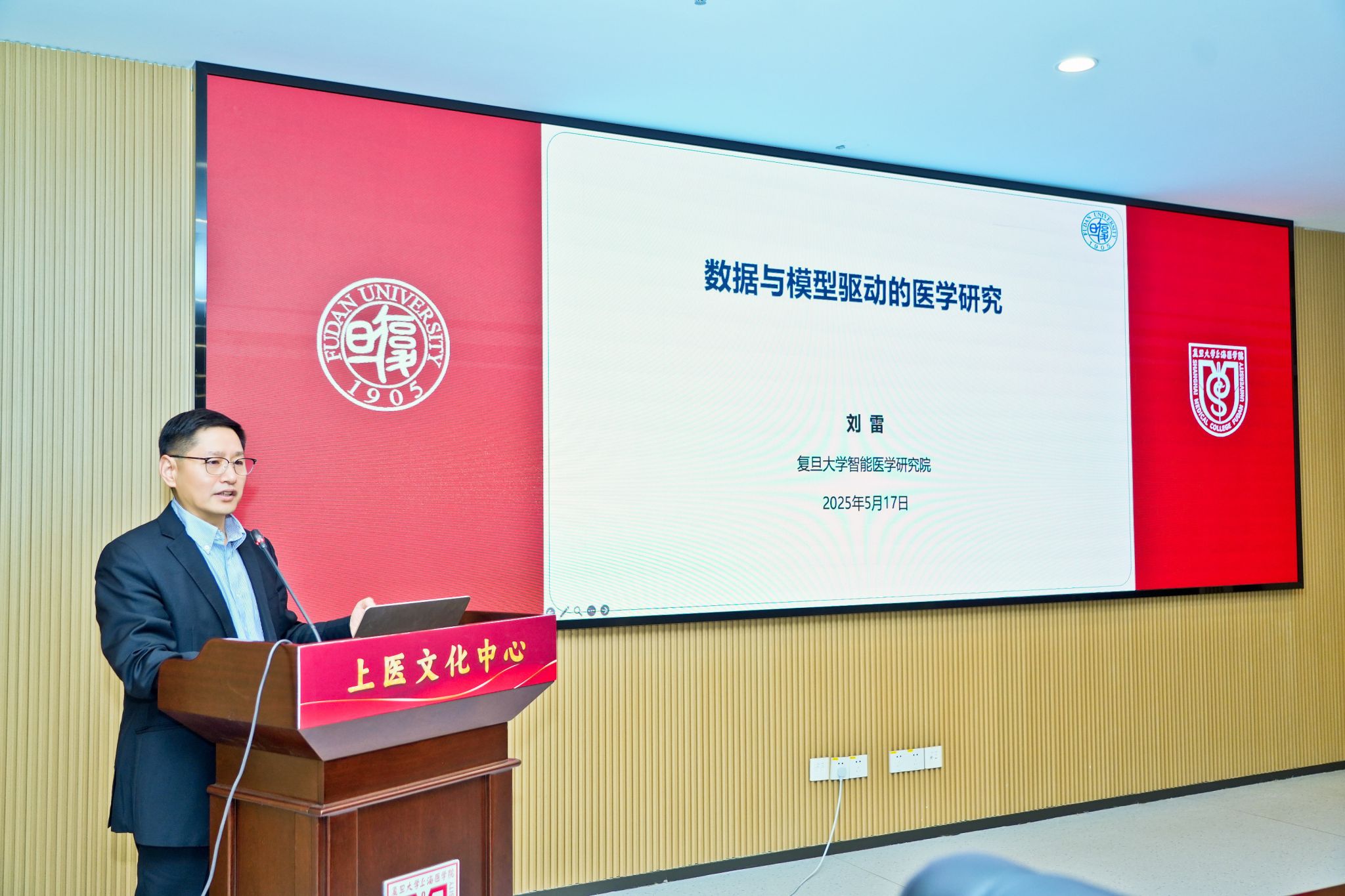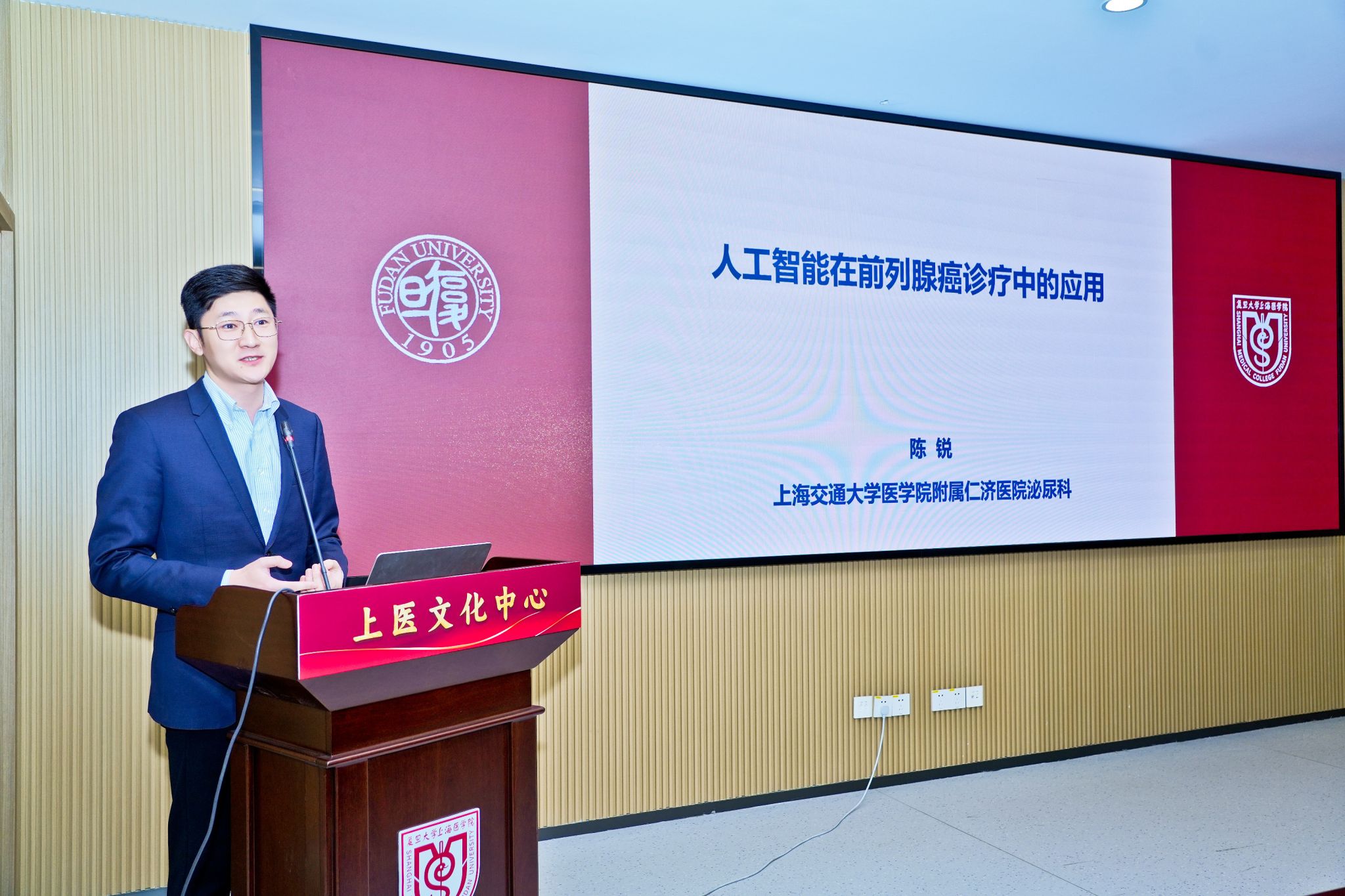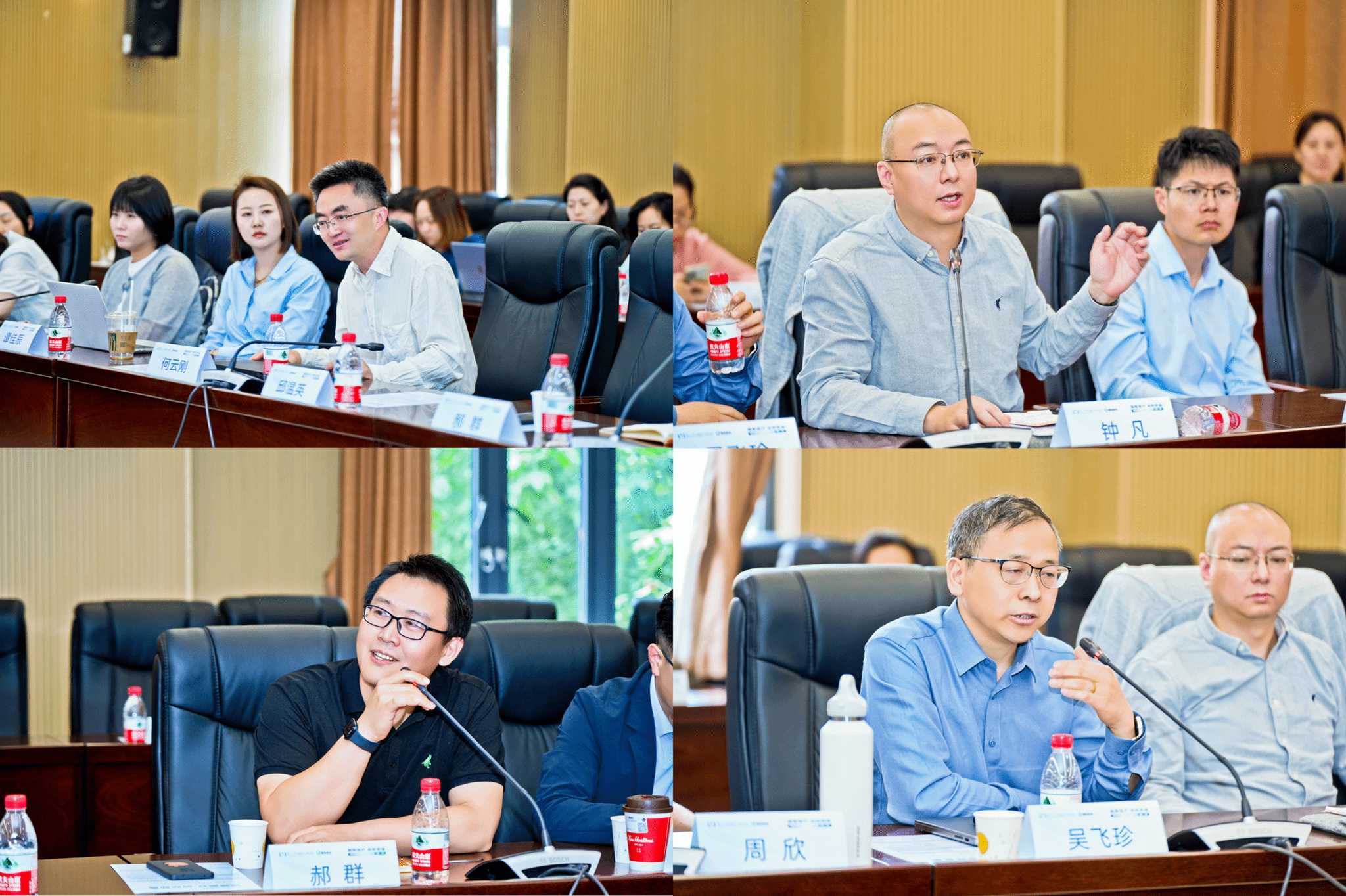On May 17, the second session of the “Fudan Smart Healthcare Interactive Salon,” co-hosted by the Intelligent Medicine Institute of Fudan University and Beijing HuiMei Technology Co., Ltd., was successfully held at Fudan University. Centered on the theme “Empowering Healthcare with Intelligence, Embarking on a New Chapter,” the event brought together over 30 experts and scholars from academia, healthcare, and industry to discuss the current applications and future prospects of artificial intelligence in medical practice.

During the keynote session, Executive Vice Dean of the Intelligent Medicine Institute of Fudan University, Professor Liu Lei delivered a presentation titled “Data- and Model-Driven Medical Research and Practice.” He provided an in-depth overview of the Intelligent Medicine Institute’s explorations and achievements in interdisciplinary integration, data governance, model development, and research platform construction. He emphasized that the essence of intelligent medicine lies in leveraging data as the foundation and models as the driving engine to deeply integrate artificial intelligence with biomedical science, thereby advancing the shift from “experience-based medicine” to “intelligent decision-making.” In his presentation, he shared several representative research cases that demonstrated the tremendous potential of data and models in disease prevention, diagnosis, treatment, and health management. He also stressed that the development of intelligent medicine requires collaborative efforts across sectors and real-world clinical feedback. He called on stakeholders from academia, industry, and healthcare to work together to promote the standardized and sustainable advancement of intelligent medicine.

Professor Chen Rui from the Department of Urology at Renji Hospital Affiliated to Shanghai Jiaotong University School of Medicine, approached the topic from a clinician’s perspective and gave an in-depth discussion on the application and prospects of AI technology in the diagnosis and treatment of prostate cancer. Using clinical cases, he demonstrated the practical effectiveness of AI in enhancing diagnostic accuracy through image recognition, pathological analysis, and risk assessment. He pointed out that AI not only helps physicians optimize personalized treatment plans but also shows great potential in improving patient visit workflows and enhancing the overall clinical experience. He emphasized that in the future, AI will play an increasingly important role in early screening, auxiliary diagnosis, and treatment evaluation of major diseases such as prostate cancer, driving clinical medicine toward intelligent and high-quality development.

During the discussion session, participating experts, scholars, and industry representatives engaged in a deep and constructive exchange focused on the prospects of AI applications in healthcare. The discussions primarily explored the potential and challenges of AI across various fields, including assisted diagnosis, personalized treatment, clinical decision support, optimization of medical resource allocation, and patient management. Additionally, attendees shared successful experiences and practical cases in promoting AI healthcare applications, while envisioning the future development of intelligent healthcare ecosystems.

The salon concluded successfully in a highly engaged and pragmatic atmosphere. Attendees unanimously expressed that the event not only enhanced their understanding of cutting-edge AI technologies and their applications in healthcare but also reinforced their confidence in fostering interdisciplinary collaboration and resource sharing. Participants expressed strong anticipation for sustained efforts to promote the seamless integration of technological innovation with clinical needs. They emphasized the importance of jointly advancing the development of a more intelligent, efficient, and patient-centered healthcare system, thereby contributing collectively to the digital transformation and high-quality advancement of the medical sector.